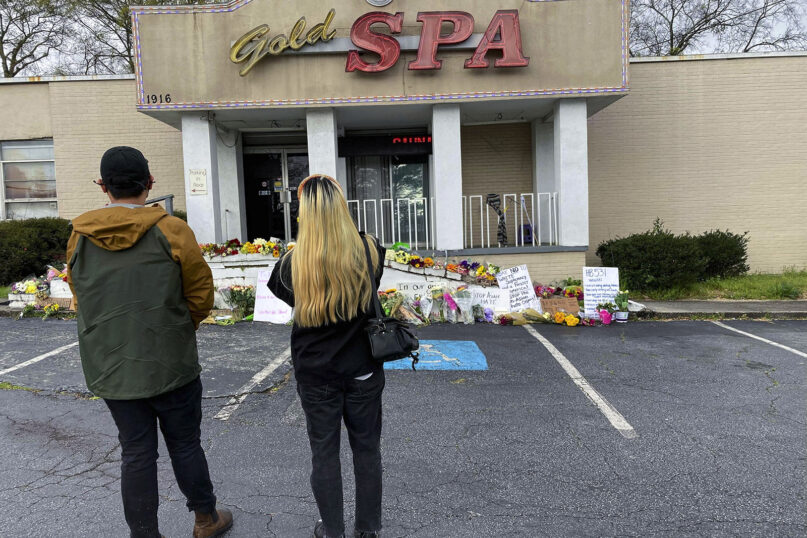(RNS) — Some parenting moments you know immediately will stick with you forever. While church shopping one Sunday last year, I sat with my family in a large gym at Johnson Ferry Baptist Church in the Atlanta suburbs, when my then 6-year-old daughter, looking around the then pre-COVID-19 room, asked, loud enough for many of our fellow worshippers to hear, “Daddy, where are the brown people?”
Zyan was asking that question because all she had known in her own school and in our previous church is diversity. At that moment I felt as if I’d been put on the witness stand to explain race to my child.
There is a heaviness in Atlanta since Tuesday night (March 16), when not 5 miles from my house, the now-infamous “spa rampage” claimed the lives of eight people, including six Asian women. This heaviness, too, has to do with church and race, and I feel called to explain, this time to my community. Twenty-four hours after the shooting, the media had already discovered the suspected gunman’s Southern Baptist church and turned up his long affiliation with the denomination. Some friends — those outside the media world — were shocked, feeling that Christians, and Southern Baptists in particular, were being persecuted for being believers.
This cry of persecution has become Christians’ go-to statement any time the media focuses on us. What we are facing, however, is not persecution, but prosecution.
We are not being persecuted for doing what is right. We are being prosecuted for how we handled the last election. For buying into conspiracy theories that we know aren’t truthful. For failing to call out our brothers and sisters who participated in the insurrection. For shifting blame, denying our participation and behaving every bit like the guilty party. Yes, it’s a post-Christian culture, but we have opened ourselves to its prosecutory powers.
We must admit that when it comes to race, politics and even how we treat each other, our churches have been on the wrong side of history. How we handle this moment will be a defining passage for Christians in this area and across the country.
This begins with changing how we deal not with our feelings about race, but with people of all races. Leaving church that day with my daughter, I made a decision to only attend churches that reflect our community. Johnson Ferry has been highlighted for their discipleship programs, and its pastor, Clay Smith, regularly speaks on the issue of discipleship. How odd it seemed that they don’t consider diversity of their staff part of discipleship in the increasingly diverse Cobb County. (I reached out to Pastor Smith but he was unavailable for comment.)
Since Tuesday, I’ve heard Christ followers defensively repeat that the issue was the gunman’s sex addiction or that “he wasn’t having a good day.” I’m not saying that the gunman didn’t have a sex problem — it’s clear he did — or that he didn’t suffer mental illness. But the rest of us need to realize our Asian brothers and sisters are watching to see how we react to the racism on display from one of ours. What they want to know is not whether we are culpable in what the gunman did, but whether we are hearing their voices.
We will be judged, too, by how we treat one another. As the Easter season nears, one of the stories we’ll hear is that of the one we call “Doubting Thomas.” Thomas struggled with his faith after the resurrection, and although he didn’t believe, what stands out is how the disciples treated him. My friend Daniel Darling writes in his book “Characters of Easter” that the disciples pulled Thomas back toward Jesus, and of course, Thomas ended up believing.
Lately I’ve noticed Christ followers treating those who question more like enemies than the brothers and sisters with whom they will be spending eternity. Scripture makes it known that the world will know us by our love for one another, not by who won the social media or denominational battle.
We are being watched by the outside culture, but, more importantly, we’re being watched by someone greater than the world around us. If we model the behavior of the people of God, we will be fine. The Letter to the Hebrews tells us this is not our home; we are just passing through. But how we conduct ourselves on the way home matters.





